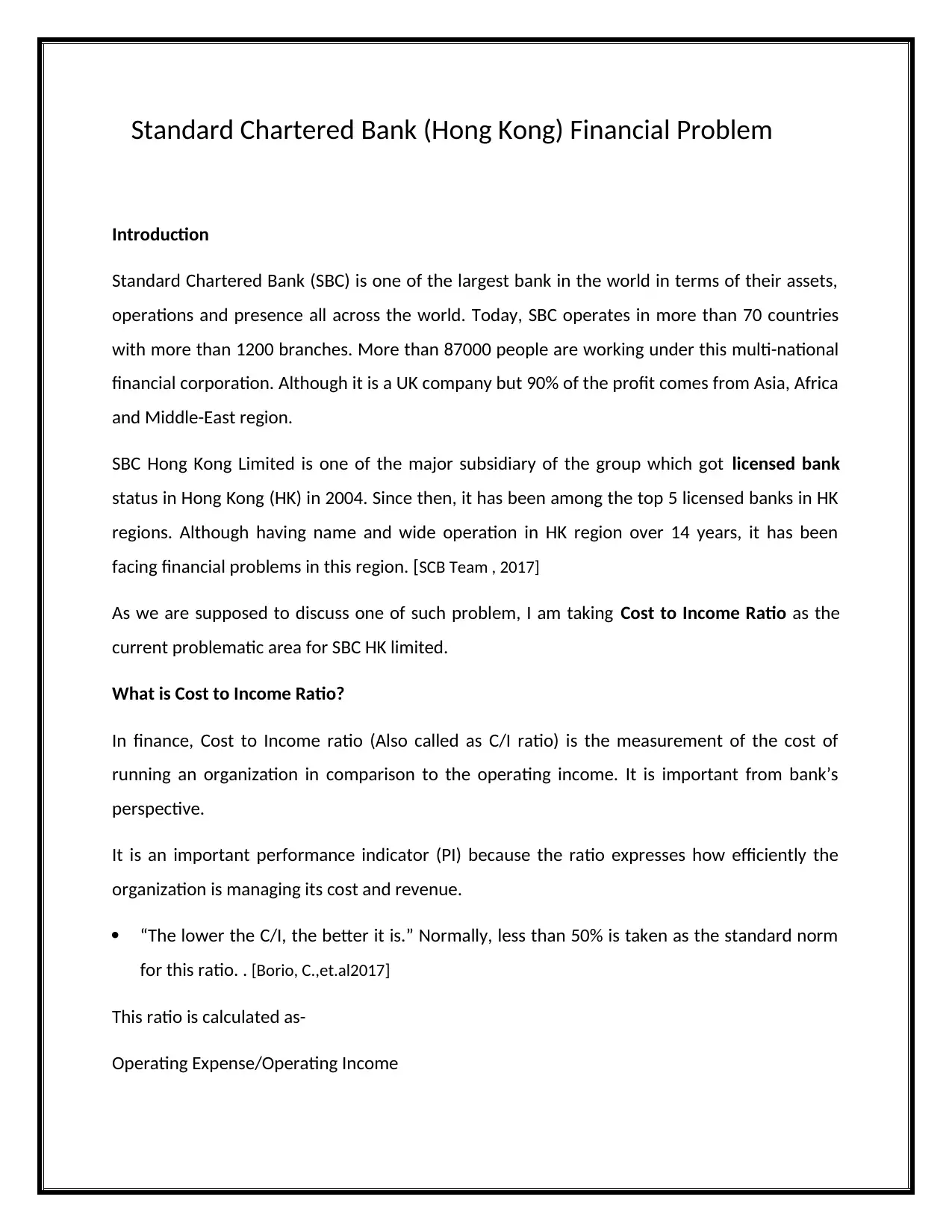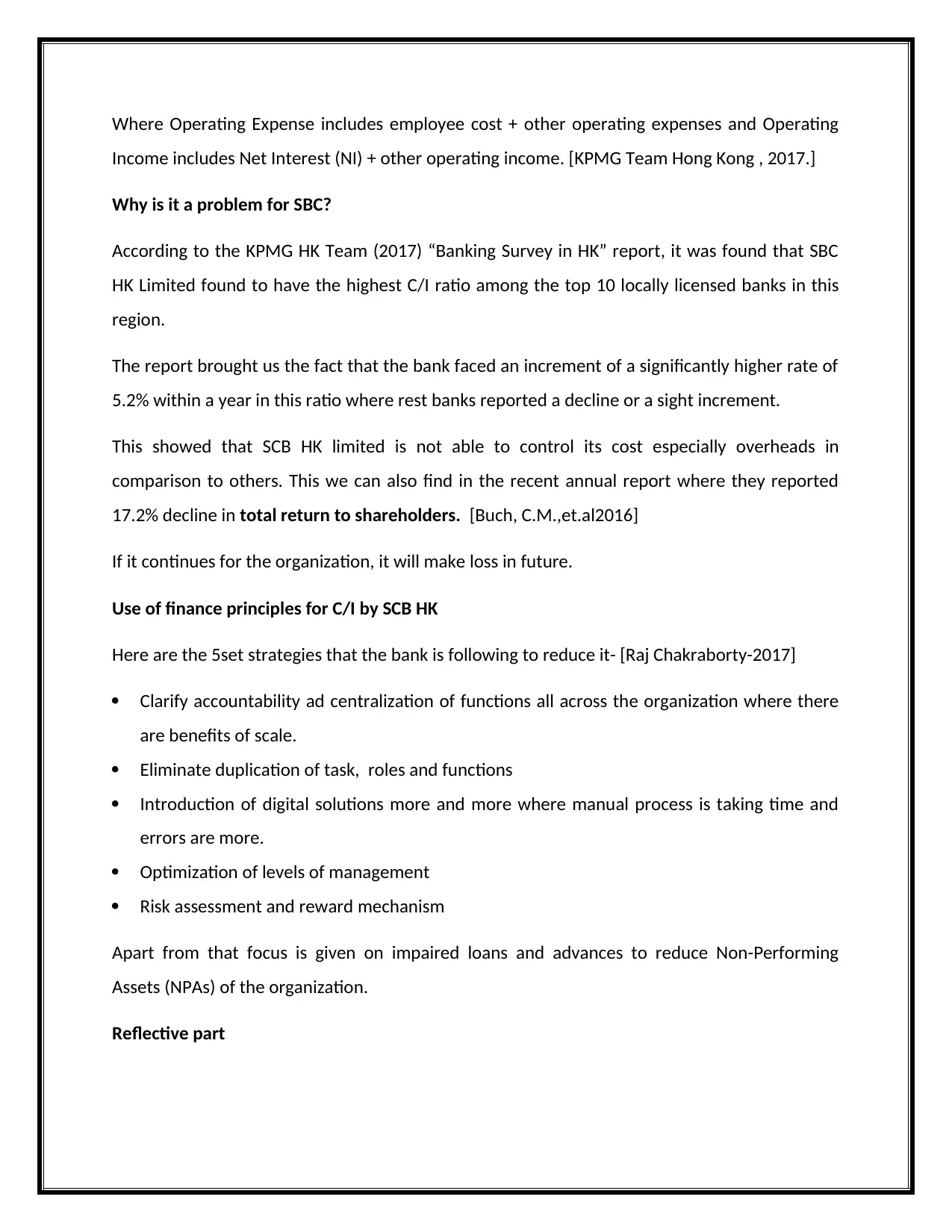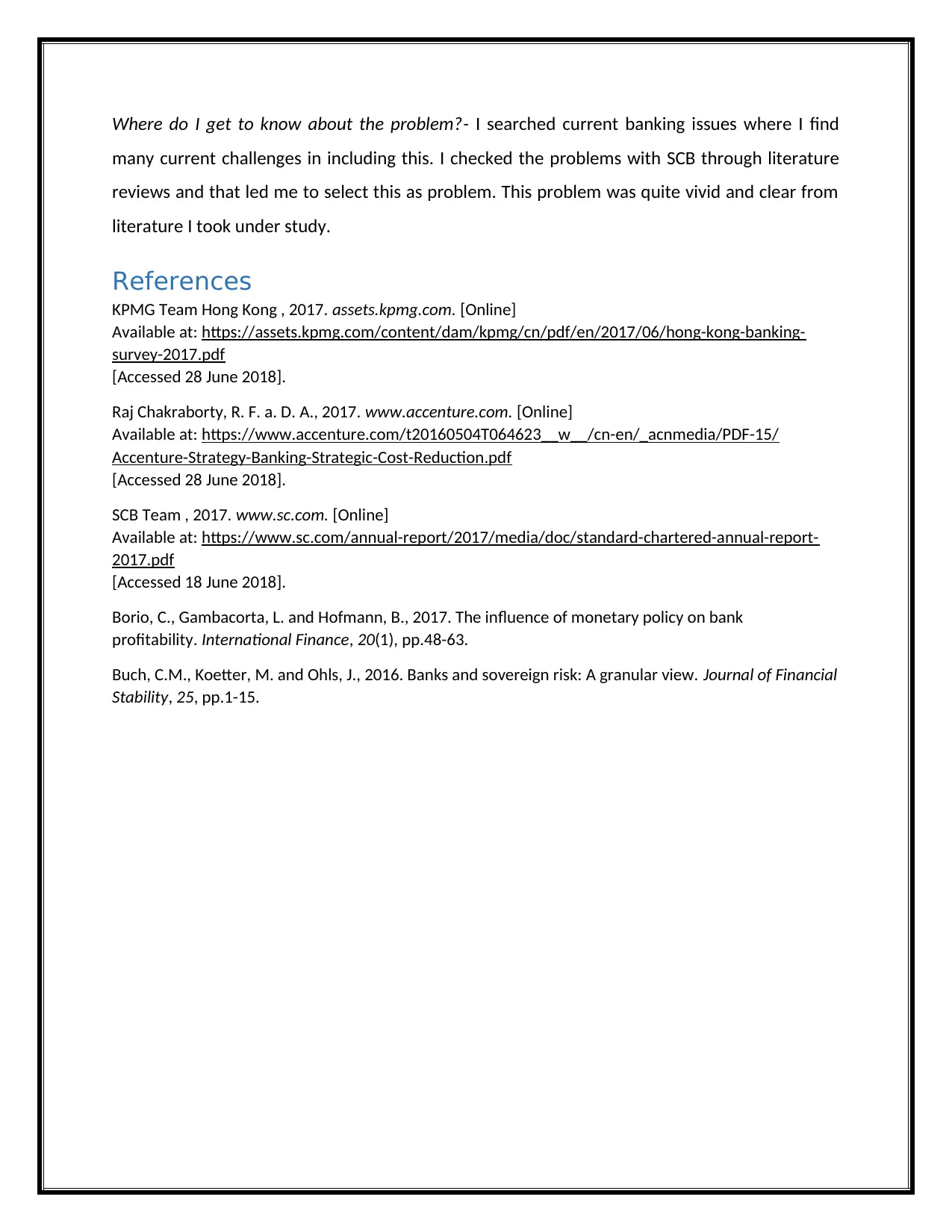Analysis of Financial Challenges: Standard Chartered HK Cost-to-Income
VerifiedAdded on 2019/09/23
|3
|786
|171
Report
AI Summary
This report analyzes the financial problems faced by Standard Chartered Bank (SBC) Hong Kong Limited, focusing on its cost-to-income (C/I) ratio. The report highlights that, despite being a major subsidiary, SBC HK has a high C/I ratio compared to other licensed banks in the region, indicating inefficiency in managing costs relative to income. It explains the C/I ratio, its calculation, and why it's a problem for SBC HK, referencing reports and data from KPMG. The report outlines strategies the bank is employing to reduce the ratio, including centralization, digital solutions, and risk management. Finally, the report explains the research process and sources used. The report is written to provide insights into the financial challenges and performance of Standard Chartered Bank in Hong Kong.
1 out of 3









![[object Object]](/_next/static/media/star-bottom.7253800d.svg)